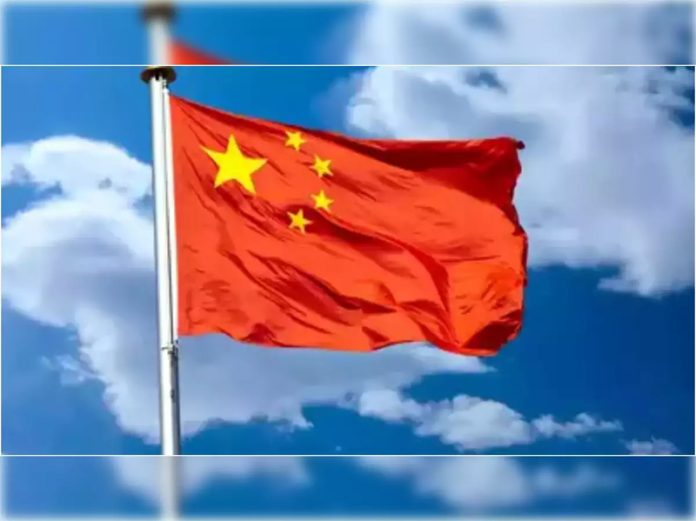BEIJING, Dec 9 : The second meeting of the China-sponsored China-Indian Ocean Region Forum on Development Cooperation (CIORF) has proposed to launch the climate information and early warning system project and carry out “small yet smart” livelihood projects in the countries of the strategically vital region.
China, which is seeking to expand its influence in the Indian Ocean region, the backyard of India, had held the second meeting of CIORF, under the aegis of the China International Development Cooperation Agency (CIDCA), an organisation that is part of the ruling Communist Party of China (CPC) Leadership Group on December 7 and 8 at Kunming in southern China.
CIDCA is headed by Luo Zhaohui, former Vice Foreign Minister and Ambassador to India.
CIDCA announced ahead of the meeting that the event would see the attendance of around 300 Chinese and foreign guests from over 20 countries and international organisations but did not release the list of countries that attended the meeting.
India was not invited to last year’s meeting and officials here say they are not aware of any invite this year either.
A joint statement issued by CIDCA after the meeting said the Forum, themed “Boosting Sustainable Blue Economy to Build Together a Maritime Community with a Shared Future,” discussed the development cooperation of the blue economy between China and countries in the Indian Ocean Region (IOR).
“All parties noted the positive progress made in delivering the outcomes of the first Forum, namely, establishing a China-Indian Ocean Region Marine Disaster Prevention and Mitigation Cooperation Mechanism, building a China-Indian Ocean Region blue economy think tank network, and setting up a China-Africa Cooperation Centre on Satellite Remote Sensing Application,” it said.
The list of deliverables mentioned in the joint statement included the launch of the climate information and early warning system project in cooperation with the United Nations Development Programme (UNDP), and carrying out 200 “small yet smart” livelihood projects for countries in the IOR.
China will also train 20,000 professionals in various fields for countries in the Indian Ocean region, while carrying out 100 special training programmes covering green development, climate change response, ocean planning, fishery development, etc, it said.
On why China chose to host a Forum on the Indian Ocean despite not being a country of the region, Luo said, China is holding the meeting on the Indian Ocean as a member of the United Nations.
In his address at the welcome dinner for the guests attending the forum on December 7, he said, “Someone may ask, China is not an Indian Ocean country. Why does China host such a Blue Economy Forum in the Indian Ocean region?”
First, China is a member country of the UN (and) to implement the UN 2030 Sustainable Development Goals (SDGs) and the Decade of Science for Sustainable Development is our joint obligation, he said.
Second, China is a dialogue partner of the Indian Ocean Rim Association for Regional Cooperation. There are 23 member countries and 10 dialogue partners in this Association. “We have our obligation to do something for the blue cooperation,” he said according to a CIDA release.
“Third, China is pushing forward the Belt and Road Initiative (BRI), including the Maritime Silkway. We have expanded multi-field and all-round cooperation with the regional countries bilaterally and multilaterally,” Luo said.
“We are facing a very uncertain world. Big powers’ competition and regional conflicts are going on,” he said.
Prominent participants in this year’s forum included the new Vice President of Maldives, Hussain Mohamed Latheef, who in his speech on Friday said cooperation in the Indian Ocean must include all countries in the region and avoid factionalism to bring about development among the ocean communities in the area.
Cooperation in the Indian Ocean must be inclusive, without discrimination and must include all countries in the region, he said.
Inclusivity would alleviate factionalism and contribute to the development and cooperation of our ocean communities in this region, which has historically been peaceful, Latheef said.
He acknowledged that China’s infrastructural projects played a “pivotal role” in his country, but significantly did not refer to the BRI under which most of the Maldives’ infrastructure projects were built.
Latheef’s speech is being viewed with interest here as he is the first high-level official of the new Maldives President Mohamed Muizzu to visit China, which gained prominence in the strategically located archipelago nation with major investments under former President Abdulla Yameen’s regime.
The Chinese forum is apparently aimed at countering India’s strong influence in the Indian Ocean region where India-backed organisations like the Indian Ocean Rim Association (IORA), which has a membership of 23 countries, have taken strong roots.
Besides the IORA, Prime Minister Narendra Modi-initiated Security and Growth for All in the Region (SAGAR) in 2015 for active cooperation among the littoral countries of the Indian Ocean region.
The Indian Navy-backed Indian Ocean Naval Symposium (IONS) seeks to increase maritime cooperation among navies of the region. (PTI)
Trending Now
E-Paper


